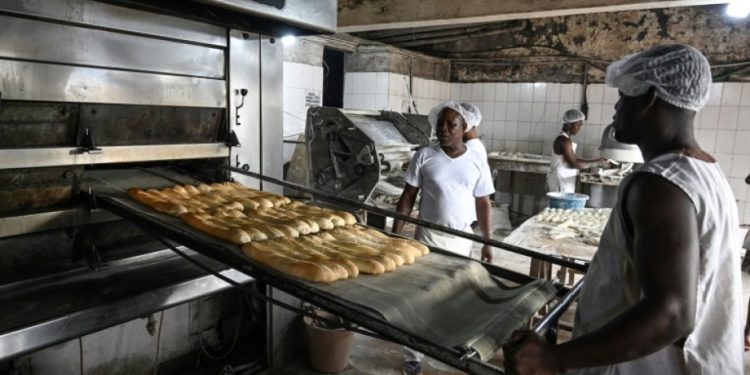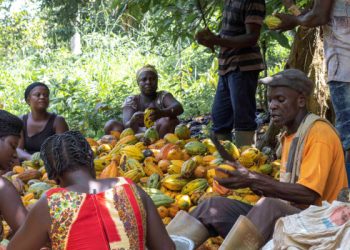As wheat prices are driven upwards by the war in Ukraine, bakers in the West African state of Ivory Coast are starting to use locally produced cassava flour to bake bread.
The baguette, the stick of bread that is much loved in the former French colony, is commonly seen as a benchmark of the cost of living.
But Ivory Coast does not produce wheat domestically, instead importing up to a million tonnes of the grain per year, mainly from France.
Surging wheat prices have stoked concern about the impact in a country of 25 million where the average wage is less than 250,000 CFA francs ($400) per month, and which was shaken by a wave of violence less than two years ago.
Ivorian authorities have pegged the price of a baguette at between 150 and 200 CFA francs ($0.25 and $0.30) depending on weight, channelling subsidies worth 6.4 billion CFA francs (about $10 million) to the country’s 2,500 bakeries.
Bakers, with the government’s support, are also starting to substitute a small portion of wheat flour with flour from cassava, a root vegetable.
Cassava, also called manioc, is Ivory Coast’s second largest crop after yam, with 6.4 million tonnes produced each year.
– ‘New flavours’ –
The cassava substitution plan ticks the boxes for economy and sustainability. But what do Ivorians think?
“Everything has become expensive in the market,” said Honorine Kouamee, a food vendor in Abidjan’s Blockhaus district who was cooking pancakes made of wheat mixed with coconut flour.
“If we can make bread with local cassava flour it will be better. People are willing to eat local products.”
The national consumers’ confederation has thrown its support behind the cassava substitute.
“It will provide a stimulus for manioc producers and maintain the price of bread,” said its president, Jean-Baptiste Koffi.
But image and taste are important and some bakers are cautious.
“It’s not a done deal,” said Rene Diby, a baker.
“For Ivorians, bread made with cassava is associated with poor-quality bread. Consumers will have to be made aware of these new flavours.”
The authorities will have to run a promotional campaign, he said.
Cassava is high in starch and is a good source of dietary fibre.
But high proportions of cassava flour lower the mineral and protein content in bread, compared with traditional wheat, a 2014 study in Nigeria found.
Financially, even using just a small portion of cassava flour would provide the government with some relief.
Last year, 10 percent of the national budget of around $16-billion was spent on food imports, despite the country’s fertile soil.










Discussion about this post